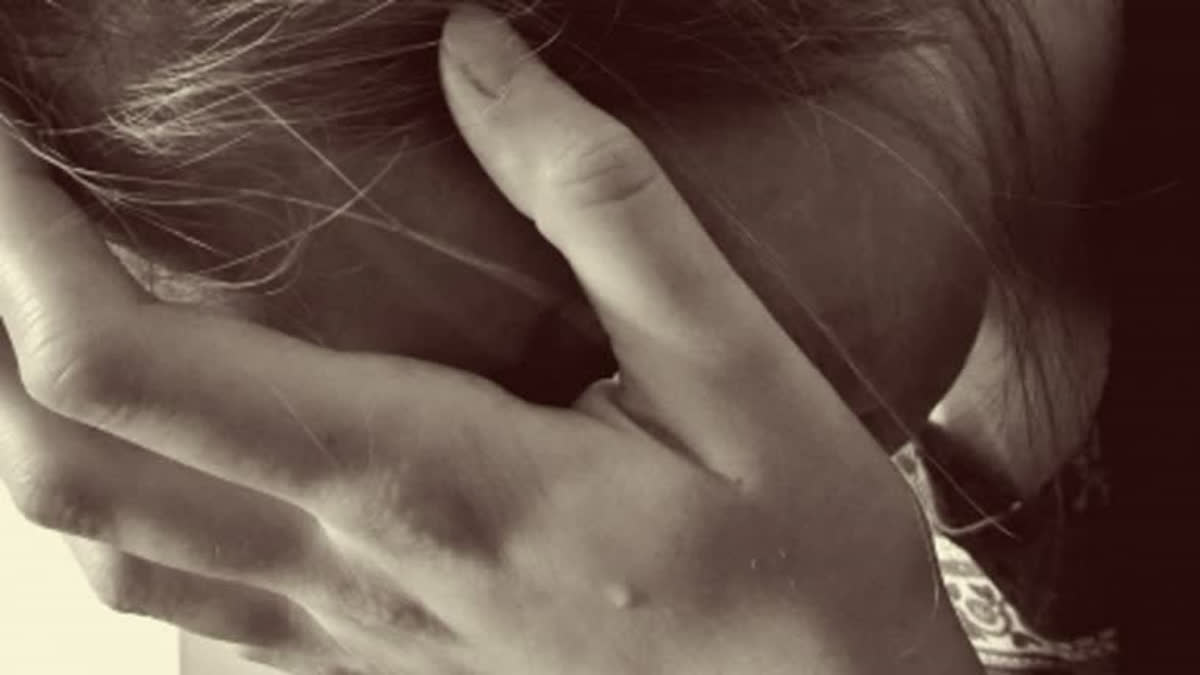New Delhi: A Parliamentary Committee has vehemently criticised the Union Health Ministry for conducting National Mental Health Survey 2015 in a limited way while collecting data on certain specific mental disorders, potentially overlooking mild or moderate mental health issues like emotional breakdown that may still require support and intervention.
“Additionally, the survey did not include specific vulnerable population such as homeless individuals, prisoners and those living in institutions, which may have led to underestimating the prevalence of mental disorders,” the Parliamentary Committee on Health and Family Welfare stated in its 148th report that was tabled in Parliament last week.
The Parliamentary Committee has recommended the Ministry address these issues in its next National Mental Health Survey (NMHS) and conduct a comprehensive study of the mental health issues and mental healthcare landscape in India. The Committee observes that while National Mental Health Survey 2015 was a welcome step, it still had scope to be a more comprehensive survey, which was done only in 12 states out of 28 states and eight Union Territories in the country and covered only about 40,000 people, which is a tiny sample considering the population of the country.
Also read: Experts examine how women, men react to stress, pressure
“The survey relied on self-reporting (and not clinical analysis) of mental morbidities by the interviewees, which can be subject to recall biases and underreporting due to the stigma associated with mental health,” the committee chaired by BJP MP in the Rajya Sabha Bhubaneswar Kalita said.
The committee further noted that most of the issues highlighted by the National Mental Health Survey 2015-16 have remained almost the same even in 2023. “There is still considerable scope to improve the treatment gap that results from the lack of mental health professionals, weak mental healthcare infrastructure, inadequate and inequitable access to mental health services, stigma and discrimination,” the report stated.
India, one of the most populous countries in the world (approximately 17.7 per cent of the world population), witnesses a significant burden from non-communicable diseases, including mental morbidities. According to the National Mental Health Survey (NMHS), about 150 million Indians are affected by some type of mental illness. The survey identified that the mental morbidity of individuals above the age of 18 years was 10.6 per cent, and the lifetime prevalence of mental disorders in the surveyed population was 13.7 per cent.
The survey stated that approximately 15 per cent of Indian adults (aged 18 and above) require active interventions for one or more mental health issues. It highlighted the coexistence of common mental disorders, severe mental disorders and substance use problems, with the middle-aged working population being particularly affected.
“Both adolescents and the elderly also face significant mental health challenges, and urban metros are experiencing a growing burden of mental health problems. The impact of these issues on individuals' work, family, and social lives, as well as their economic consequences, is concerning. However, the current mental health systems suffer from weaknesses, fragmentation and a lack of coordination, with deficiencies observed across all components at the state level,” the survey has found.
Also read: 56,014 medical students died by suicide in last five years: Health Ministry
The survey stated that the treatment gap associated with mental health is huge, and the reasons for this are several and range from availability to affordability and are influenced by several factors. The treatment gap in India for mental disorders ranged between 70 and 92 per cent for different disorders.
According to the Mental State of the World Report 2022, India is one of the most mentally distressed countries in the world. As per the report, 30.1 per cent of Indians are mentally distressed or are struggling with their mental health. According to the report, India has the highest mentally distressed population among its neighbouring countries.
India, with a mental well-being score (MHQ) of 58.8, was ranked 56th in terms of mental wellness amongst 64 countries. Countries with the highest mental well-being scores were Tanzania, followed by Spanish-speaking countries like Panama and Puerto Rico. Representatives from the Health Ministry informed the committee that building on the lessons learnt from NMHS 2015–16 and leveraging on it, the Ministry is working on NMHS 2, which is proposed with the objective to estimate the prevalence of NMS disorders in a nationwide representative population to identify the disability, socio-economic impact, pathways to care and service utilisation pattern and to characterise mental disorders, illness concerning vulnerable and special population.
Speaking to ETV Bharat, Committee chairman Bhubaneswar Kalita said that mental health issues are a serious matter. “We hope the Health Ministry will definitely look into the suggestions given by the committee,” said Kalita. Quoting a statement from the Health Ministry, Kalita said that the NMHS-2 will be conducted in two phases covering all States and UTs across the country.
The NMHS-2 is being conducted in two phases, including Mental Health Systems Assessment and Characterising Vulnerability, which would be assessed across all States and UTs. Phase 1 of NMHS 2 started in October last year and will continue till March 2024 whereas Phase 2 of NMHS will start from April 2024 and it will continue till March 2025.


